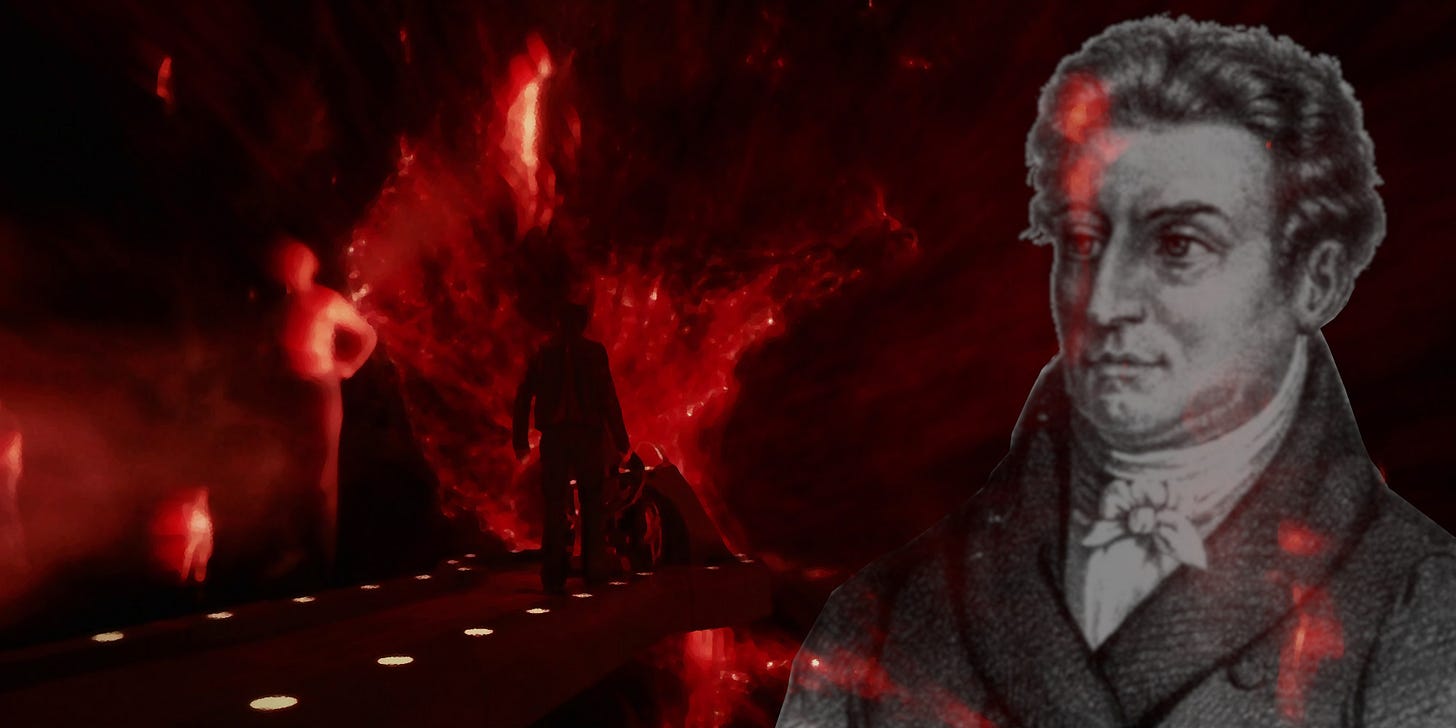Knowledge Requires Freedom
What connects the X-men's Cerebro and Enlightenment firebrand Johann Gottlieb Fichte? Other minds!
“The relationship between free beings is one of free interaction; it is by no means a relationship of mere causality operating through mechanical forces... we begin with freedom... and assume that they are free as well.” - Johann Gottlieb Fichte
Supposedly, the problem of ‘other minds’ is insoluble. We can introspect our own mental states (Descartes’ famous “Cogito Ergo Sum”), but in observing other people we have no way of knowing if there are minds behind what we are witnessing. Here is the problem of free will inflated into its most expansive form. If other people do not have minds, we should doubt whether we do. Yet we don’t exist inside Descartes’ private mental prison, but within a complex web of conscious social relationships that we seldom doubt. When it comes to both ‘other minds’ and free will, the mystery is arguably why we followed Descartes in doubting them in the first place.
Science fiction sometimes depicts our inherent faith in consciousness dramatically, as with the X-Men’s Cerebro, which hurdles the existence of other minds and goes on to posit a kind of telepathic access that most scientifically-minded folks would consider preposterous. However, this scepticism of other minds doesn’t end at accessing them through mental powers, it extends to the entire realm of conscious life itself. Despite how effortlessly our sci-fi mythos incorporates other minds, much of our scientific community remain curmudgeonly resistant to allowing consciousness for even one mind!
Immanuel Kant’s brilliant student Johann Gottlieb Fichte (Yo-han Got-leeb Fik-tuh) offers us a complete inversion of this problem: if our freedom were illusionary, we could claim no viable meaning for understanding. Fichte argues that the very act of comprehension requires a genuine contingency of judgement. If we legitimately claim to understand something, we reach our determination for good reasons. But even though our reasons explain why we judge an issue a certain way, our judgements remain contingent. We’re not compelled to reach a certain judgement, since there are always other aspects that might draw us into thinking differently. Even the strongest reasons cannot compel us to oblige their implications: we are always free to act against them.
This is in no way limited to our internal thoughts. The very act of producing reasons to sway the opinions of others requires us to accept the existence of those other minds that we are supposedly doomed to doubt. If reasons have any compelling force whatsoever, we have no choice but to presuppose free will for everyone. For Fichte, both our sense of self and our rationality is grounded on the fact that we are beings who are summoned by others. Rationality is not a computational state, as embodied by the great imaginary science fiction computers (HAL 9000, Skynet, Deep Thought etc.), it emerges between the communication of rational beings. Our acts of expressing reasons that might affect other people’s behaviour presupposes both free will and ‘other minds’.
This undermines that abject philosophy espoused by certain psychologists and neurologists whereby our conscious life is little more than a fantastical post-hoc rationalisation for our behaviour (which is ‘really’ conducted for other reasons). There is a limit, as Allen W. Wood brilliantly draws out of Fichte’s philosophy, to the extent that this can be a reasonable representation of all human thinking. It evidently cannot apply to these purported explanations of ‘what’s really going on’ unless those making such deflationary claims are magical beings unaffected by this supposedly universal phenomena. If all human behaviour is merely an illusion to paper over our subconscious motives, this constraint would apply to scientists as much as anyone else!
If we wish to claim comprehension of anything at all, we have no choice but to acknowledge that we are free - and so is everyone else. This is effectively a leap of faith. But if we refuse it, we must throw away far more than freedom and ‘other minds’: we must give up reasons, comprehension, and the sciences too. The very act of being persuaded of something (including our models of how things work) entails a conscious transition from uncertainty to conviction. Once we presume we are free, the entire rich pageant of morality, the sciences, the arts, and all human interaction springs forth in its chaotic abundance. We may not be able to build a machine like Cerebro that could show us this rich inner landscape, but we should never doubt its reality. If we would claim to know, we first must accept that we are free.






Hear, hear! Human minds are apparently so constructed that over time every possible proposition will be taken as true by someone. Isn’t the personal experience of free will nearly universal? Do doubters really believe that they are not who they experience themselves to be? Evan as humankind slowly amasses evidence for the construction of reliable models of what’s out there, we apparently tend to want to stay confused. Does taking a stand that every action I make is the result of my bio-computer non-indeterminately evaluating the near infinite complexity of each moment in the light of all that I have ever experienced and thought about imply that I lack a will? Or if I don’t lack a will, is it in some mysterious way not free? Really? Would I have things arranged any other way?
With empathy for all,
Frank
PS Chris, I have not forgotten Stranger Worlds. It is just that my dance card has suddenly become over full. For one, my journalist/author eldest daughter has started me on a personal memoir project. Some of the pieces I’m writing for that project will eventually appear on the Citizen Philosophers Substack, but like everything else, that will have to wait its turn.